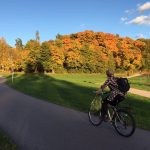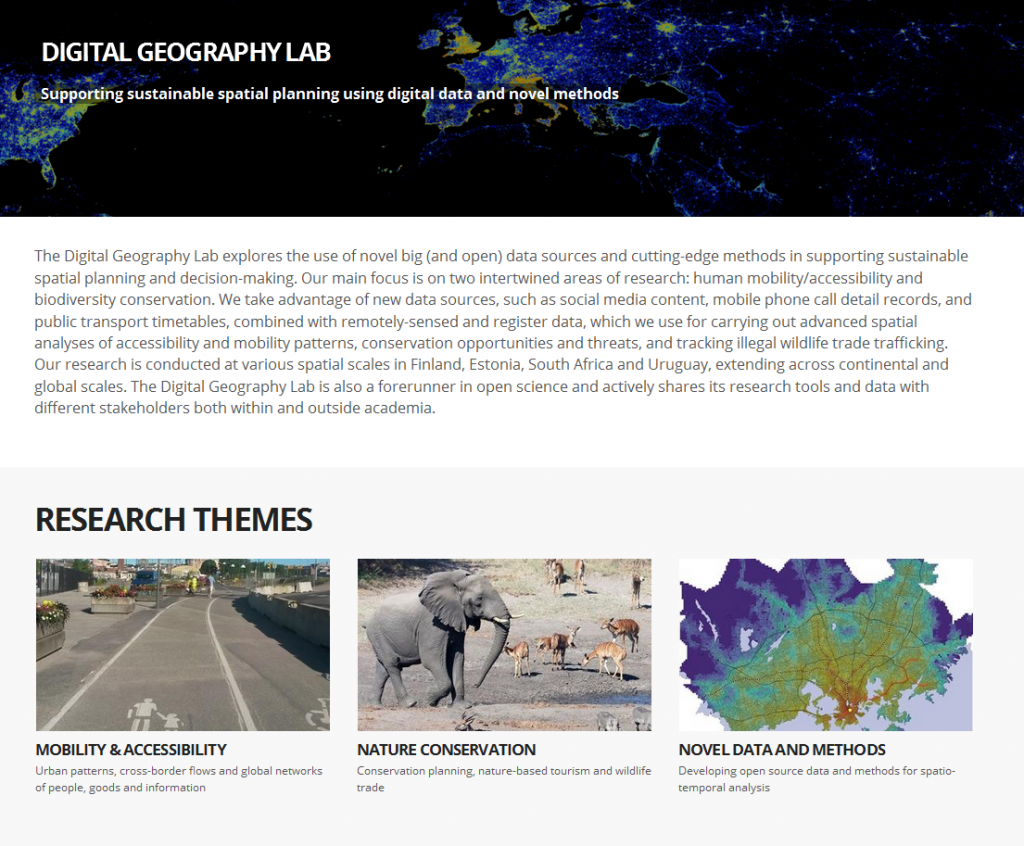Ludovic, a Master student from the Civil Engineering French National School (ENTPE) and University of Lyon joined our Digital Geography Lab for five months as an intern to carry out his final year project in Helsinki.
Ludovic defended successfully his thesis titled “Cycling as a part of sustainable urban transport in Helsinki: Assessing the influence of weather on cycling activity” back in Lyon, France on 14th September 2017. He’s research aimed at assessing how weather influences bicycle use, and thus empirically examined Helsinki as a case sample for a one year study period using both automatic bicycle counter system and bike sharing system (BSS) data sets, in addition to a detailed weather observation data from the Finnish Meteorological Institute. Ludovic showed i) how the influence of weather conditions depends on different time periods, ii) how different weather attributes influence cycling, and iii) to compare strengths and weaknesses of both cycling data sources in studying weather impact on cycling.
Results shows that weather conditions influence bicycle use more on weekends than during working days whereas weather influences cycling the least during peak hours (work-related cycling). The strongest influencing weather attribute is air temperature, yet also other attributes (e.g. wind, precipitation, humidity, snow) affect bicycle use. Statistical analyses showed similar weather influences on cycling for both data source regardless of differences between automatic counter and BSS data sources in case of counting locations (counting places vs BSS stations), bicycle users (own bikes vs part of public transport) and study period (all year vs summer period).
In conclusion, Ludovic’s work clearly indicates that weather conditions matter in using bicycles and is an excellent starting point for considering the influence of weather more in planning and developing urban cycling in Finland. Moreover, it revealed several promising research avenues and ways to develop methodology for obtaining more accurate assessments of weather influence on cycling.




